4 major takeaways from the Amy Coney Barrett confirmation hearings
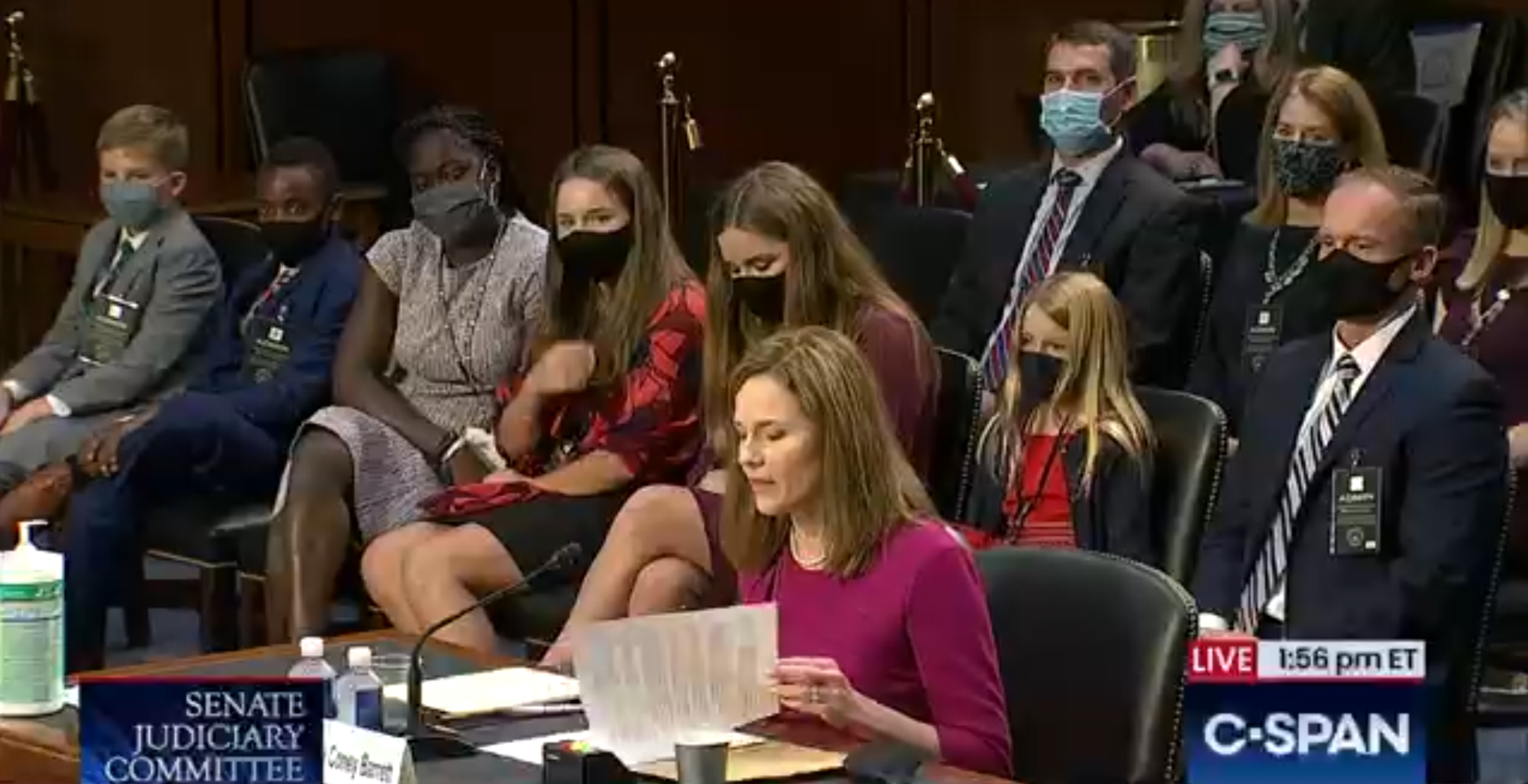
The fast-tracked nomination and near-certain confirmation of Judge Amy Coney Barrett to the U.S. Supreme Court means conservatives could secure a majority that will shape the court for decades to come.
With the presidential election less than three weeks away, President Donald Trump also could succeed in placing a third jurist on the bench after appointing Justice Neil Gorsuch in 2017 and Justice Brett Kavanaugh in 2018.
The hearings were marked by Barrett’s refusal to be drawn into stating policy preferences on health care, abortion, gun restrictions, climate change and same-sex marriage. The 48-year-old judge for the Chicago-based 7th U.S. Circuit Court of Appeals said the law will guide her as she makes decisions at the highest court in the land.
With the upcoming election and pandemic in the foreground, Barrett staked out her ground early by reminding the Senate Judiciary Committee of the justices who had come before her. She echoed the late Justice Ruth Bader Ginsburg, stating that she would offer “no hints, no forecasts, no previews.”
“That had been the practice of nominees before her, but everybody calls it the Ginsburg rule because she stated it so concisely, and it has been the practice of every nominee since,” Barrett said.
Barrett resisted the notion that she is the female incarnation of originalist Justice Antonin Scalia, for whom she once clerked. “If I am confirmed, you would not be getting Justice Scalia,” Barrett said. “You would be getting Justice Barrett.”
We spoke to a number of legal experts across the ideological spectrum to get their thoughts on this week’s hearings. Here are four takeaways:
A civil tone reigned amid high political stakes
The circumstances of Barrett’s nomination and confirmation were far from routine. Democrats were outraged that Republicans are pushing through a nominee on the eve of a general election after refusing to hold hearings for President Barack Obama’s nominee Judge Merrick Garland prior to the 2016 election. But the civil nature of the proceedings and Barrett’s calm, measured tone struck some as a return to normalcy in a bitterly fought election campaign.
 Thomas Jipping. Photo courtesy of the Heritage Foundation.
Thomas Jipping. Photo courtesy of the Heritage Foundation.Thomas Jipping, a senior legal fellow with the Heritage Foundation: “I have been pleasantly surprised that the core issue in any Supreme Court nomination—that is the judicial philosophy of the nominee—has been clearly discussed. She’s been clear about her judicial philosophy and that’s the point of the hearing. In that way, the hearing has been invaluable.”
 Lena Zwarensteyn
Lena ZwarensteynLena Zwarensteyn, Fair Courts campaign director at the Leadership Conference on Civil and Human Rights, was less impressed: “The way in which Sens. [Lindsay] Graham and [Mitch] McConnell are pulling off the theatrics of this make it seem like it’s normal, but it’s not. The fact that they held the hearing barely three weeks after Justice Ginsburg passed away, the fact that there are numerous aspects of her record that are still being disclosed, that is part of the problem of this being rushed. I don’t see this as business as usual.”
 Ashley Baker. Photo courtesy of the Committee for Justice.
Ashley Baker. Photo courtesy of the Committee for Justice.Ashley Baker, director of public policy at Committee for Justice: “You have to keep in mind that from the beginning of the hearings the Democratic senators had all decided to vote against her already. You already have a tone set in place and know where things are going. This process has gone downhill for so many years. I think it couldn’t get that much worse. Perhaps the format of having some of it virtually did contribute a little bit to taking down the level of tension.”
Judicial independence is in the spotlight
Over the course of Barrett’s confirmation hearings, Democratic senators pushed her to provide her views on specific legal issues, including the Affordable Care Act, Roe v. Wade and LGBTQ discrimination.
Trump has been vocal in intertwining his policy preferences with each of his Supreme Court picks. Barrett said she made no commitments to the president or anyone else on how she would rule in any case, and if she had, it would be “a gross violation of judicial independence.”
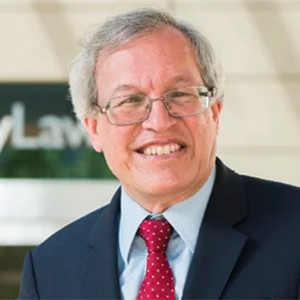 Erwin Chemerinsky. Photo by Jim Block.
Erwin Chemerinsky. Photo by Jim Block.Erwin Chemerinsky, dean of the University of California at Berkeley School of Law: “Judge Barrett has a paper trail that leaves no doubts about her views. Indeed, her repeatedly describing herself at the hearings as an originalist and as having the same judicial philosophy as Justice Antonin Scalia left no doubt as to where she will be on crucial issues. Justice Scalia was emphatic that Roe v. Wade should be overruled, that there is no constitutional protection for marriage equality for gays and lesbians, and that the Affordable Care Act was unconstitutional.”
 Keisha Russell. Photo courtesy of the First Liberty Institute.
Keisha Russell. Photo courtesy of the First Liberty Institute.Keisha Russell, counsel with the religious freedom group First Liberty Institute: “History tells us that you can’t always predict how any of these justices are going to rule. All the justices are going to have opinions. They are people. They’re not robots. We want to make sure that we’re appointing justices that are going to be judicially independent, no matter what their beliefs are, and make sure that their decision is based on the law and not on their own personal policy preferences.”
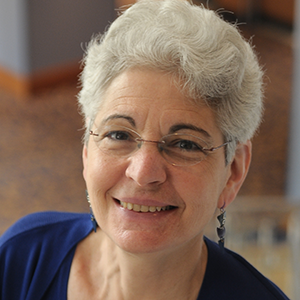 Marge Baker
Marge BakerMarge Baker, executive vice president of People For the American Way: “Her views on health care and on reproductive rights are extraordinarily significant, because if confirmed, she is expected to be the deciding vote to overturn landmark precedents in those areas. With respect to judicial independence, what was most notable was what she would not say. She would not say that voter intimidation was unlawful, she would not say that a president cannot unilaterally move an election or that a president should commit to a peaceful transfer of power.”
Jipping: “She expressed the very same view of judicial independence that past Supreme Court nominees have expressed and that I think everyone believes in their gut. It would be wrong for the administration to ask her about [her policy preferences]. It would be wrong for the administration to ask her the kind of questions that a lot of Democratic senators have in this hearing. If a judicial nominee would make such commitments, the Senate should defeat her nomination unanimously.”
The election looms large
Barrett dodged questions about whether she would recuse herself in any case involving 2020 election results. This inquiry evolved from Trump’s statements about needing a fully seated Supreme Court in the event of a disputed election and was top of mind for several senators during the hearings.
 Adam White. Photo courtesy of the AEI.
Adam White. Photo courtesy of the AEI.Adam White, a resident scholar with the American Enterprise Institute: “If you came down from Mars and turned on this confirmation hearing, 90% of it would be normal questions. The issues are all conventional. When senators start asking questions about peaceful transfer of power, post-election obstruction and self-pardons, those are all reminders that this normal confirmation process, which is a nice escape from our brutal politics, is happening in the middle of totally abnormal politics caused by the president.”
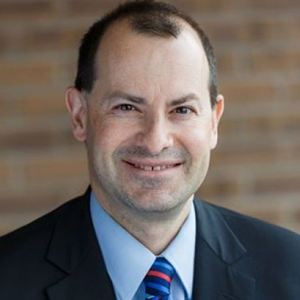 Daniel Goldberg
Daniel GoldbergDaniel Goldberg, legal director at the Alliance for Justice: “This president has repeatedly said that ‘one reason I need Amy Coney Barrett on the ballot is to help me win this election.’ She was asked, given the president’s statement, isn’t there an appearance of impropriety and bias if she gets on the court and rules? She refused to say that she will recuse herself … Amy Coney Barrett has done nothing in this hearing to alleviate the real concerns that she will not be independent from the president that appointed her.”
Russell: “Just because she was appointed by President Trump, that doesn’t mean that her allegiance is to the president. Her duty is to the American people. I think she did make that clear. Although I’m not sure all the Democrats were necessarily satisfied with her answers.”
Marge Baker: “We know that the majority of Americans believe this should have waited until after the election, so they are not likely to be happy with senators who rammed this through. We also know health care is a top issue for voters, and it has been pretty well established that Barrett is a threat to the ACA. So, the most salient effect is likely to be a backlash at the ballot box for senators who vote for her.”
Barrett will change the dynamic of the court
If Barrett is confirmed, conservatives would have a 6-3 majority. It remains to be seen how she will handle precedents in pivotal cases that could come before the court, and how her confirmation will shift Chief Justice John Roberts’ standing as the court’s swing vote.
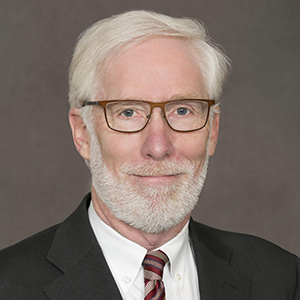 James Wagstaffe
James WagstaffeJames Wagstaffe, chair of the Federal Judicial Center Foundation Board: “The appointment of Supreme Court justices, with the exception of declaring war, may be the most powerful thing a president can do, because it lasts for a generation. Think about the presidents who are dead who have members of the Supreme Court for years later. She’s very smart. She’s obviously qualified. She’s what you’d expect Trump to do.”
White: “I think what’s most interesting is where she fits in among the conservative justices, on issues that conservatives sometimes disagree about; things like deference to administrative agencies; things like federal power versus state power; even things like how to read a statute we saw in the Civil Rights Act case Bostock. That was the case about discrimination on the basis of sex and sexual orientation and gender identity. We see the conservatives often disagree about these things, and it will be interesting to see where she slots into those disagreements.”
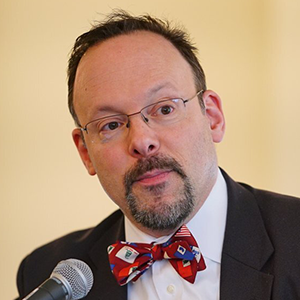 Jonathan Adler
Jonathan AdlerJonathan Adler, law professor at the Case Western Reserve University School of Law, on Roberts: “With a Justice Barrett he’s less likely to be the swing vote. As chief, he will retain the ability to assign the opinions. Anytime he joins the majority, he’ll be the senior most judge, he will be able to assign cases based on his view of what sort of opinion would be best for the court and that’s powerful. One of the really interesting questions will be whether or not the addition of Justice Barrett affects the types of cases the court accepts to hear, and that’s something that I think we will want to pay a lot of attention to.”
ABA Journal Coverage of Amy Coney Barrett Hearings
Day Four
- 4 major takeaways from the Amy Coney Barrett confirmation hearings
- As SCOTUS confirmation hearing ends, a ‘well qualified’ Barrett avoids controversy and opinions
- Barrett had ‘rare gift of lifting everyone around her;’ former clerk and law student praise her kindness
- Why Amy Coney Barrett got a ‘well qualified’ rating from ABA standing committee
Day Three
- Is Barrett an adequate Ginsburg replacement? Debate over philosophy is appropriate, she says
- Barrett won’t give her opinion on ‘contentious matter’ of climate change
- ‘I hope that you aren’t suggesting that I don’t have my own mind,’ Barrett tells senator
- SCOTUS nominee says she’d keep an open mind about cameras in the high court
- Barrett: No one is above the law, but Supreme Court can’t force other branches to comply with judgments
- Barrett: Sharing Scalia’s philosophy doesn’t mean I agree with every sentence he said
Day Two
- Sen. Booker complains of rushed nomination process for Barrett, notes Notre Dame profs’ call for delay
- After seeing George Floyd video, Barrett says she wept with her daughter
- Barrett says she doesn’t see Roe v. Wade as ‘super precedent’
- SCOTUS nominee Barrett says she’s not ‘hostile’ to the Affordable Care Act
- Would Barrett recuse in 2020 election case? She spoke of appearances but didn’t answer the question
- Barrett: Racism and discrimination is ‘abhorrent’; ‘I have never discriminated on the basis of sexual preference’
Day One
- In delayed remarks, retired Notre Dame law dean praises Barrett as ‘brilliant but humble’
- Democrats at Barrett confirmation hearing focus on health law, even as they label proceedings a ‘sham’
- Judge Amy Coney Barrett rated ‘well qualified’ for Supreme Court by ABA standing committee
- Barrett tells of lessons learned from Scalia in confirmation hearing opening statement



